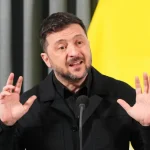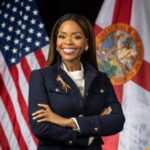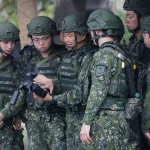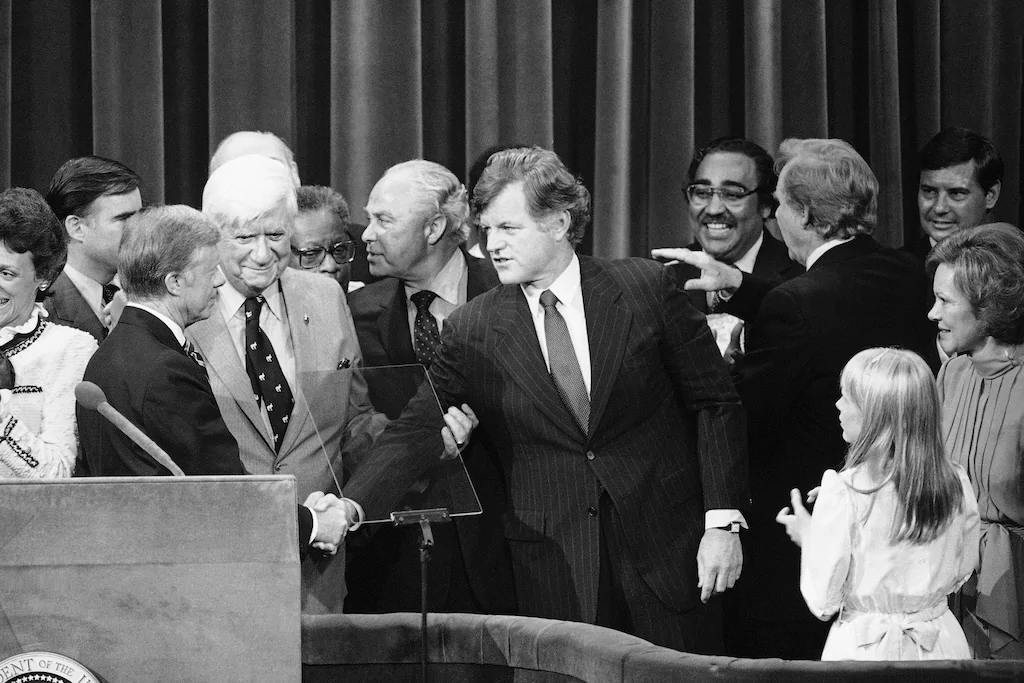
Democrats will gather in Chicago this week to hype up their presidential ticket of Vice President Kamala Harris and Gov. Tim Walz (D-MN) as they look to make the 2024 Democratic National Convention as memorable as past editions.
Ahead of the 2024 iteration, here are four memorable moments from past DNCs.
1968 — Chicago taken to the brink
One of the most infamous Democratic National Conventions, the 1968 gathering in Chicago was marred with protests over the Vietnam War that sent parts of the Windy City into chaos.
Confrontations between protesters and police got feisty as Democrats nominated Vice President Hubert Humphrey to take on former Vice President Richard Nixon, the Republican presidential nominee that year.
The thousands of protesters were met with 11,900 Chicago police officers, more than 5,000 Illinois National Guard troops, additional Army troops, and other law enforcement officers, who became engaged in what would later be described as a police riot. Many of the violent clashes came from police blocking protesters from entering areas that were off-limits, as the anti-Vietnam War protesters tried to get closer to the convention center where the DNC was being held, according to CNN.
Another part of the tension came within the convention center, as the Democratic Party was torn apart over the Vietnam War — a matter that partially shattered then-President Lyndon B. Johnson’s reelection bid, which he ended in March of that year. Fights broke out on the convention center floor, with journalists also getting roughed up by security, in some cases live on air.
The chaos of the 1968 convention changed the way presidential tickets are selected, with both major parties altering their nomination processes afterward. The reforms have made it easier for a nominee to be selected ahead of the convention to avoid the qualms and chaos of an open convention.
Democrats returned to Chicago for their convention in 1996.
1980 — Carter’s uneasy convention
Then-President Jimmy Carter had to fight hard for a second nomination as the Democratic Party’s pick for president in 1980, after a spirited primary challenge from then-Sen. Ted Kennedy.
While Carter was successful in avoiding an open convention and securing the nomination without a fight at the meeting of Democrats in New York, he was unsuccessful in preventing some of the left-wing proposals for the Democratic Party platform championed by Kennedy from being approved.
Kennedy was also not enthusiastic in his support of Carter, which included an awkward moment after Carter gave his speech at the convention. Kennedy arrived nearly 20 minutes after Carter finished his speech, and while Carter appeared to try to get Kennedy to raise their joined hands in the air to show unity, Kennedy only offered a handshake, according to Politico.

Carter had another awkward moment during his convention address when he attempted to pay tribute to Humphrey, who died in 1978. Carter accidentally called Humphrey “Hubert Horatio Hornblower” before correcting himself.
In the general election later that year, Carter suffered a landslide defeat to former California Gov. Ronald Reagan.
2000 — Al and Tipper Gore’s passionate moment
When presidential nominees greet their spouses on the convention stage, a kiss is usually expected. But at the 2000 Democratic National Convention, the kiss lasted a bit longer than usual.
Then-Vice President Al Gore walked onstage to accept the Democratic nomination and was greeted by his wife, Tipper. The couple shared a kiss, which seemed normal until the vice president grabbed his wife tighter and kissed her for three seconds.
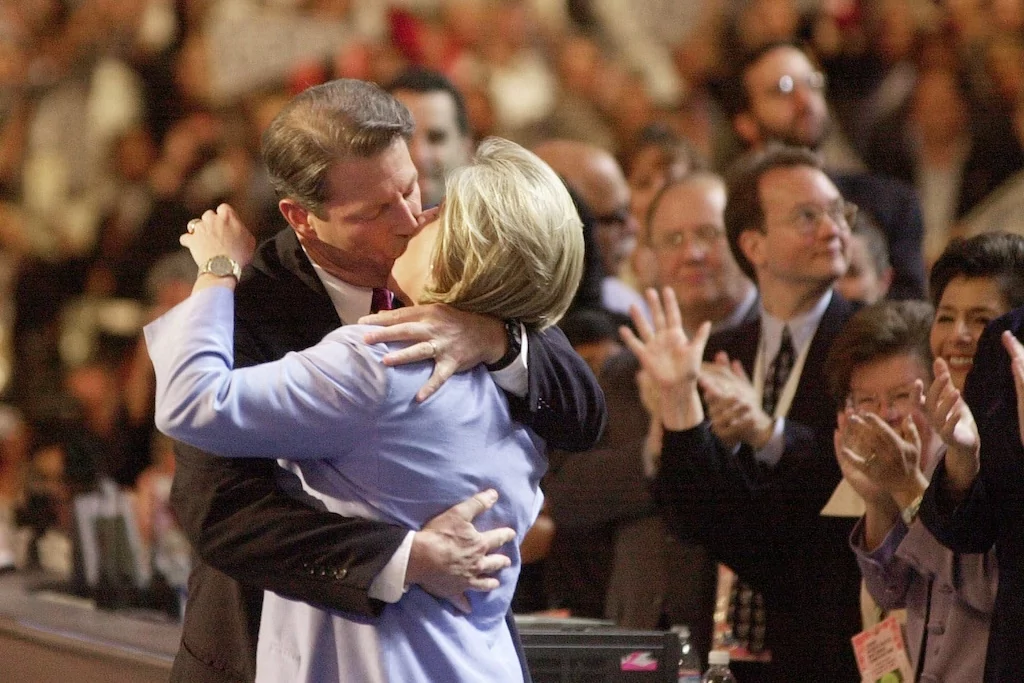
The media and analysts suggested Gore went for the passionate kiss to dissuade talk that he was robotic and show his humanity, according to the New York Times.
In the 2000 election, Gore narrowly lost to then-Texas Gov. George W. Bush. Al and Tipper Gore separated in 2010 after 40 years of marriage.
2004 — Obama’s electric speech
While not the Democratic nominee in 2004, the story of that year’s Democratic National Convention was Barack Obama, then a Senate candidate in Illinois, and his electric keynote speech at the gathering in Boston.
Obama’s entrance onto the national stage at the 2004 DNC was a speech centered on unity, with his famous talk of there only being one America — a united America.
“Yet even as we speak, there are those who are preparing to divide us, the spin masters and negative ad peddlers who embrace the politics of anything goes,” Obama said. “Well, I say to them tonight, there’s not a liberal America and a conservative America — there’s the United States of America.
“There’s not a black America and white America and Latino America and Asian America — there’s the United States of America,” he added.
The speech also included a full endorsement of then-Sen. John Kerry, the Democratic nominee that year, but Obama had overshadowed him at the convention. Kerry lost the 2004 election to Bush, but the speech launched Obama’s national political career. He won the Illinois Senate race in November 2004 before winning the presidency in 2008.
CLICK HERE TO READ MORE FROM THE WASHINGTON EXAMINER
As Democrats have renewed confidence ahead of this year’s convention after replacing President Joe Biden with Harris at the top of the ticket, they will hope to have an Obama moment at their convention to continue the enthusiasm through November.
The Democratic National Convention will be held Monday through Thursday, with notable speakers including Biden, Obama, and Walz. Harris will accept the Democratic Party’s nomination during a prime-time speech Thursday evening.




